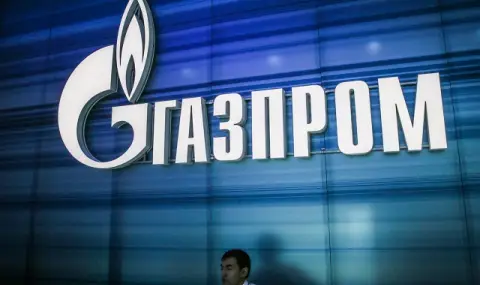European officials are trying to persuade Azerbaijan to a scheme to transfer gas through a pipeline that currently delivers Russian fuel to the EU via Ukraine, a senior Azerbaijani official told POLITICO.
The proposal is a way to keep natural gas flowing to Europe - while excluding Russia when a transit deal between Kiev and Moscow expires at the end of the year. The EU previously said it was prepared to let the deal expire as it was confident sufficient energy supplies came from other sources.
"The European Union and the transit countries we are talking about have approached Azerbaijan about this issue," Hikmet Hadjiev, a senior adviser to Azerbaijan's President Ilham Aliyev, said in an interview with POLITICO.
"We are currently considering various options on how we can contribute to this process," he added. "I would refrain from putting a time frame, but again there was... a request and we took it seriously because it is a matter of European energy security."
The Azerbaijani scheme is viewed with growing concern in several EU countries, including Slovakia and Hungary, which have long relied on the pipeline through Ukraine for their energy.
In response to a request for comment, European Commission energy policy spokesman Tim McPhee told POLITICO that "The Commission is working very closely with affected member states to find alternative supplies and routes.
The Russian gas transit deal dates back to 2019, when Russia and Ukraine signed an agreement that allows Moscow's state energy company "Gazprom" to export supplies to the EU through pipelines passing through the country, despite political tensions between the two countries.
That gas continues to flow even after Russia's full-scale invasion of its neighbor in 2022, but the transit agreement expires at the end of the year.
The gas pipeline is an important source of energy for Europe. In 2023, it carried approximately 15 billion of the 25 billion cubic meters of Russian gas going to Europe. The system connects Poland, Slovakia, Hungary, Romania and Moldova.
Last year, Ukrainian Energy Minister Herman Galushchenko told POLITICO that Kiev would not directly agree to an extension of the agreement, saying that "bilateral negotiations are impossible". EU energy commissioner Kadri Simson also said the bloc had "no interest" from renewing the agreement.
However, several alternative solutions have been proposed. Last week, Bloomberg reported that the countries of Central Europe are considering an option under which Azerbaijani gas would be injected into the pipelines.
"At the moment, eight countries from the European Union receive Azerbaijani gas," said Hadjiev. "We hope to expand the geography of [Azerbaijani] gas importers from the wider European family."
Suddenly cutting off gas supplies would most affect Slovakia, which has historically relied on Moscow for all its gas imports. Slovak Prime Minister Robert Fico visited Azerbaijan last month and said he would do "everything politically necessary" to get gas from the country.
It is not clear whether the plan will involve the export of Azerbaijani gas through Russia or whether the volumes will be "swapped" between the two parties before they are shipped.
Either way, according to Aura Sabadus, a gas markets expert at commodities intelligence firm ICIS, any deal is likely to allow Moscow to collect at least some revenue and allow gas production sites to continue operating in Russia .
"In the end, Russia will still win and at the moment "Gazprom" is in a difficult financial position. "Production is at a record low and they have to sell gas," Sabadus said. Last month, the Moscow-based gas export giant posted its first annual loss since 1999.
Furthermore, Sabadus added that while a complete shutdown of gas supplies through Ukraine could raise prices for consumers in Central Europe, "all the countries affected, Slovakia, Hungary and so on, have alternatives.
Despite efforts to reduce its dependence on Russia, a new analysis of ICIS data shows that for the first time in almost two years, Moscow delivered more pipeline natural gas and LNG to Europe than the United States in May.< /p>
Since Russia started its war in Ukraine, the EU has been strengthening its energy ties with Azerbaijan.
During a high-level visit to the country in 2022, European Commission President Ursula von der Leyen signed a memorandum of understanding with Azerbaijani President Ilham Aliyev to effectively double gas supplies to Europe from Azerbaijan, hailing it as a "decisive energy partner" in the release from Moscow.
The European Parliament called for the deal to be reviewed amid growing political tensions with Azerbaijan over its offensive in the breakaway region of Nagorno-Karabakh.
Azerbaijan will host this year's UN COP 29 climate talks and is looking to use the event to boost investment in both renewable energy and its fossil fuel industry.
"We are largely investing in increasing our gas production because Europe needs more gas from new sources," Aliyev said earlier this year. "Our oil and gas will be needed for many years to come, including (in) European markets."
